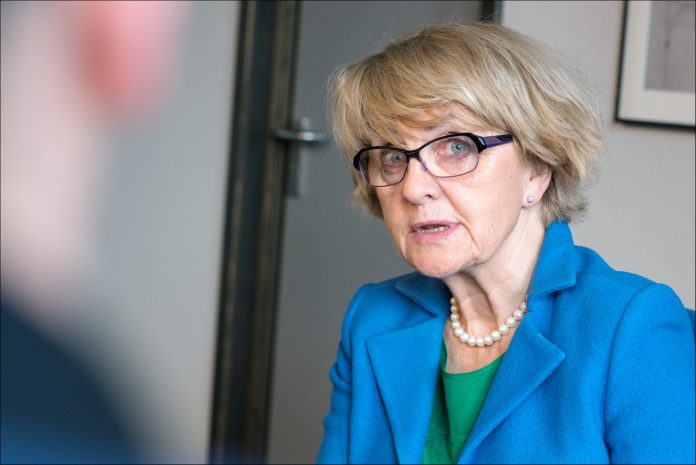The European Parliament on February 7 approved plans for a post-Brexit reduction – from 751 to 705 MEPs. Of the 73 parliamentary seats currently held by British MEPs, 27 will be shared out among 14 EU countries that are slightly under-represented EU countries. The rest will be put in reserve.
As explained in a European Parliament press release, some or all of the 46 seats in the reserve could then be reallocated to new countries joining the EU or preserved to keep the institution smaller.
All MEPs agreed that this allocation would apply only if the UK actually leaves the EU. Otherwise the current arrangements would stay in place until further notice.
“In times when democracy as a system is called into question, it is our duty to re-ignite citizens’ passion for democracy,” said co-rapporteur Danuta Hübner (EPP, PL), who was responsible for the Report on Composition of the European Parliament.
“I hope we can take a step in the right direction by approving a distribution of the European Parliament’s seats that is fair, that follows objective principles, and that respects the EU’s Treaty,” she said.
In turn, co-rapporteur Pedro Silva Pereira (S&D, PT) said this is an important step forward for European democracy. “The new allocation of seats means that we will reduce the overall number of MEPs from 751 to 705 while ensuring no loss of seats for any member state. Currently under-represented countries will get 27 of the 73 UK seats available after the UK leaves the EU. This will make the European Parliament a fairer reflection of the citizens it represents.”
However, a proposal by the European Parliament’s Constitutional Affairs Committee calling for a number of MEPs to be elected from an EU-wide electoral constituency, was rejected by the full House.
The European Green Party criticised the parliament’s rejection of transnational lists. Co-chairs Monica Frassoni and Reinhard Bütikofer said: “Progress towards a more open and democratic Europe was stopped in its tracks today following the resounding rejection of transnational lists by European Members of Parliament. The goal of greater integration will now inevitably be pushed back as a result of a severe lack of ambition and failure of the majority of the European Parliament to fulfil its responsibility as the engine of European democracy. We believe in a Europe that unites people around values and ideals that transcend national borders.”
They also said the European Greens have been steadfast in their support of the transnational lists and will continue to fight for a political landscape in which this can be seen as a viable option for a more democratic Europe.

